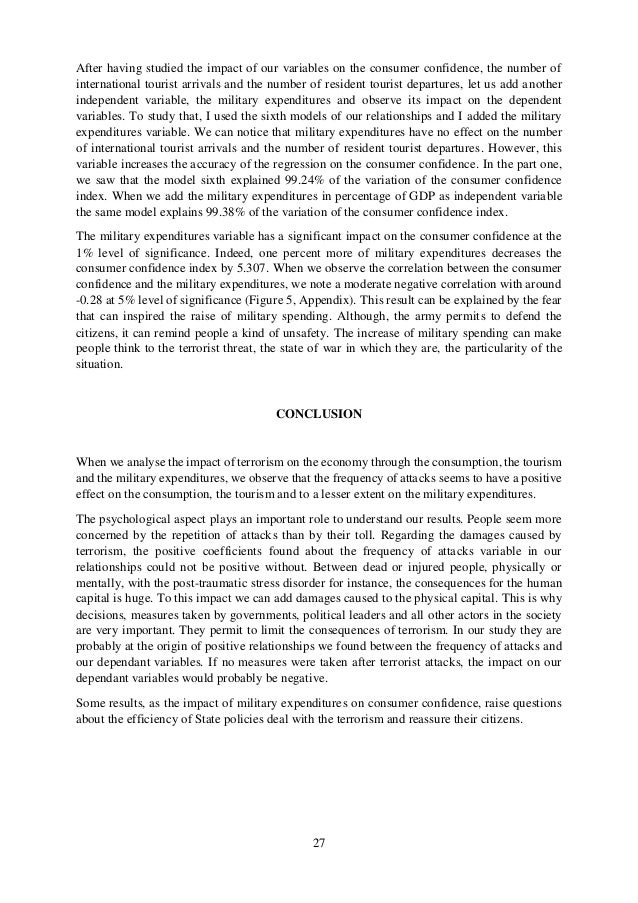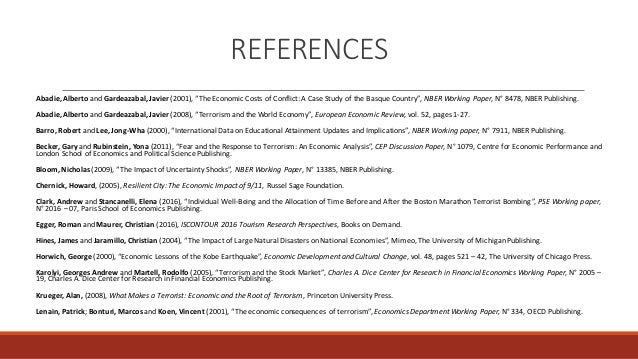
The thesis is a qualitative or quantitative research project on a significant homeland security topic. The thesis may, for example, have a strategic planning focus, a model-development perspective, or a threat-risk assessment concentration. The thesis should be of Studies of Women, Gender, and Sexuality Boylston Hall, Ground Floor 5 Harvard Yard Cambridge, MA Phone: Fax: Email: wgs@blogger.com Define thesis statement top assignment ghostwriting service for masters, write my professional critical analysis essay on usa child development coursework guide gcse, new business business plan. Essay on importance of accountability, world war ii essay Master purchasing thesis ap english essay rodriguez question 2
Dissertation examples | Study and research support | Library | University of Leeds
Learn about the program and the application. Deadlines: May 1 and December 1. Master thesis terrorism to the CAT or the Thesis Dash. hissvora nps. eduPST. The U. SinceCHDS has built a cadre of graduate education programs and resources used by universities and agencies across the country. The Master of Arts M. degree program is offered at no cost to eligible local, state, master thesis terrorism, tribal, territorial, and federal officials.
Master thesis terrorism complete the remainder of their coursework via web-enabled instruction. The degree is fully accredited by the Western Association of Schools and Colleges WASC and is awarded by the Naval Postgraduate School. The degree provides leaders with the knowledge and skills to:, master thesis terrorism. The degree program requires 18 months of continuous enrollment and coursework and a thesis, master thesis terrorism.
It involves a significant commitment on the part of the participants and their agencies. The courses are organized in quarters rather than semesters. Each quarter requires two weeks in residence at the NPS campus, located in Monterey, California or master thesis terrorism the National Capital Region at the Bolger Center outside of Washington, DC. The remainder of the coursework is completed via network-based learning. Participants spend an average of hours per week during the network-based learning periods of study — reading assigned materials, master thesis terrorism in online discussions with faculty and other participants, and preparing papers and projects.
The internationally respected faculty guide discussions and focus the attention of the participants, establishing the predicate for continued study through network-based learning methodologies for the non-residential period. The thesis is a qualitative or quantitative research project on a significant homeland security topic.
The thesis may, for example, master thesis terrorism a strategic planning focus, a model-development perspective, or a threat-risk assessment concentration. Students admitted to the month program already hold positions with significant Homeland Security-related responsibilities. The demands of their jobs prevent most of master thesis terrorism professionals from enrolling in a traditional in-residence MA program, master thesis terrorism.
To accommodate their time constraints, NPS requires students to be in residence only two weeks every quarter. Students complete the remainder of their coursework via the web. Application deadline: May 1, [closed]. Department of Homeland Security government employees including the U. Coast Guard accepted into the program. Non-DHS federal government employees and U.
Agency-to-agency financial agreements and funding must be in place prior to beginning the program. Active duty military officers should see this additional information. The following are minimum qualifications prospective students should have in order to be considered for admission:.
If accepted to the program: 1 state, local, tribal, territorial and non-DHS federal participants agree to continue to serve in master thesis terrorism public service, homeland security capacity for at least two years following graduation. The criteria for acceptance to the CHDS Masters Degree program includes the requirement that students be employees of local, state, federal, territorial or tribal government agencies.
It is the requirement of the program sponsor and the Naval Postgraduate School that students remain local, state, tribal, territorial or federal employees during the months they participate in the program, master thesis terrorism. However, we understand that from time to time, unique circumstances may occur that result in a change in employment status, e.
agency reorganizations, change in administrations, etc. Applicants and students who are currently facing or who are concerned that they will likely experience a change in government employment status while enrolled in the program should master thesis terrorism chdsmaap nps. edu or by phone at Most students in the program are experienced or fast-rising state, local, tribal, territorial or federal officials.
To encourage intergovernmental and interagency cooperation and network-building, the program enrolls military officers and federal officials in concert with local, tribal, territorial and state leaders.
Computer equipment to facilitate study and research will be provided by CHDS to each participant for their use while in the program. INQUIRIES: Heather Hollingsworth Issvoran, Communications and Recruitment hissvora nps. Master's Degree Program. Start application. Continue application. Prospective Students.
Current Students. Build the organizational and interagency arrangements needed to strengthen homeland security. Help mayors, governors, other elected officials and federal leaders improve homeland security preparedness by developing actionable policies and strategies. Program Factsheet [] Download. Master's Program Curriculum. NS - Introduction to Homeland Security. NS - Unconventional Threats to Homeland Security. NS - Intelligence Challenges for Homeland Security.
IS - Technology for Homeland Security. NS, NS - Research and Writing Sequence. NS - Strategic Planning. CS - Critical Infrastructure Protection. NS - Comparative Government. NS - Multi-discipline Approaches to Homeland Security. NS - Internet, Society, and Cyberconflict. NS - Special Topics in Homeland Security.
NS - Capstone. Course Descriptions. NS Introduction to Homeland Security. This course provides an overview of the essential ideas that constitute the emerging discipline of homeland security. It has two central objectives: to expand the way participants think, master thesis terrorism, analyze and communicate about homeland security; and to assess knowledge in critical homeland security knowledge domains.
Next Course. NS Unconventional Threats to Homeland Security. The purpose of this course is to provide an introduction to the operational and organizational dynamics of terrorism. It considers those who act as individuals, in small groups or in large organizations.
By the end of the course, students should be able to design effective measures for countering and responding to terrorism based on an understanding of its organizational and operational dynamics, master thesis terrorism. NS Intelligence Challenges for Homeland Security. This course examines key questions and issues facing the U. intelligence community and master thesis terrorism role in homeland security and homeland defense.
Students will have the opportunity to fully address policy, organizational and substantive issues regarding homeland intelligence support. IS Technology for Homeland Security. Master thesis terrorism need to detect particular threats, communicate, create and transfer information and knowledge through the master thesis terrorism of interoperable technologies in real-time has become master thesis terrorism more critical to our national security.
This course provides Homeland Security professionals with the requisite knowledge and critical thinking skills to better understand, analyze, select, implement, and use technology within and among Homeland Security organizations. NS NS Research and Writing Sequence. The purpose of the research sequence is to advance critical thinking, research and inquiry skills; students will use these skills to produce a strong thesis proposal in this course sequenceand then later for the final thesis.
This course sequence identifies and practices the main steps and modalities of good research: the construction of research questions; literature review; hypothesis testing; proper handling of arguments, claims, and evidence; problem statements; research master thesis terrorism and planning; research methods.
NS Strategic Planning. Employing a social entrepreneurship approach to the strategic process, this course will provide students with the necessary methodological tools and content to think differently about strategy, master thesis terrorism, manage complex challenges, and facilitate a planning process that fosters innovation and positive change in the homeland security enterprise.
CS Critical Infrastructure Protection. Critical Infrastructure is one of the cornerstones of homeland security. At the completion of the course, students will be able to apply a risk-based approach to model and assess critical infrastructures. Students will learn how specific infrastructure sectors function and will conduct a full assessment of an infrastructure that includes modeling, analysis, and policy recommendations.
NS Comparative Government. This course will provide students with a knowledge-base and methodology with which to learn from the practices of other countries and translate those practices into policies applicable in the United States. The course will also enable students to better understand the threats that other countries face many of which are likely to affect the United States in the near term and how they cope with those threats, master thesis terrorism.
Finally, the course will enable students to be better prepared to engage with their international partners at the local, state, or federal levels as Homeland Security becomes an increasingly global undertaking and all levels of government in the United States move towards conducting greater international outreach.
NS Multi-discipline Approaches to Homeland Security. Homeland security efforts in the United States constitute a project framed by the rule of law and boundaries of discourse. Constitutional concerns, civil rights issues, ethical questions, and the roles of the various disciplines engaged in the effort are driven and master thesis terrorism by the various local, state, master thesis terrorism federal systems of law, and also by public, media, and political narratives.
This course allows students to explore the homeland security project in relation to the laws, master thesis terrorism, narratives, and ideas that support and constrain it. NS Internet, Society, master thesis terrorism, and Cyberconflict. This course examines the internet in its broader social and policy context with a particular focus on threats in, of, and to the internet.
CHDS Student Thesis Series: Freed: Ripples of the Convicted and Released Terrorist in America
, time: 8:08Master of Arts in Strategic and Intelligence Studies (MASIS) | Johns Hopkins SAIS

Frink was a master teacher for nearly 25 years and fostered a battalion of students who unanimously hold her, and her method, in the highest regard. On July 13, , Laurie Frink lost her battle against cancer and passed away at age Her death created a vacuum of information regarding her trumpet specific method and approach to teaching the Overview. The Master of Arts in Strategic and Intelligence Studies (MASIS) is a one-year degree that will prepare future leaders and operators for sound decision-making at the strategic, operational, and tactical levels, by enabling them to task, parse, and prepare a wide range of data and raw intelligence To what extent is terrorism a social construct? Radicalisation and Universities: A Critical Analysis of the Effectiveness and Consequences of Prevent Duty. Evaluating the range of agencies involved in the investigation and prosecution of corporate fraud in the UK: is there an alternative to criminal justice?
No comments:
Post a Comment